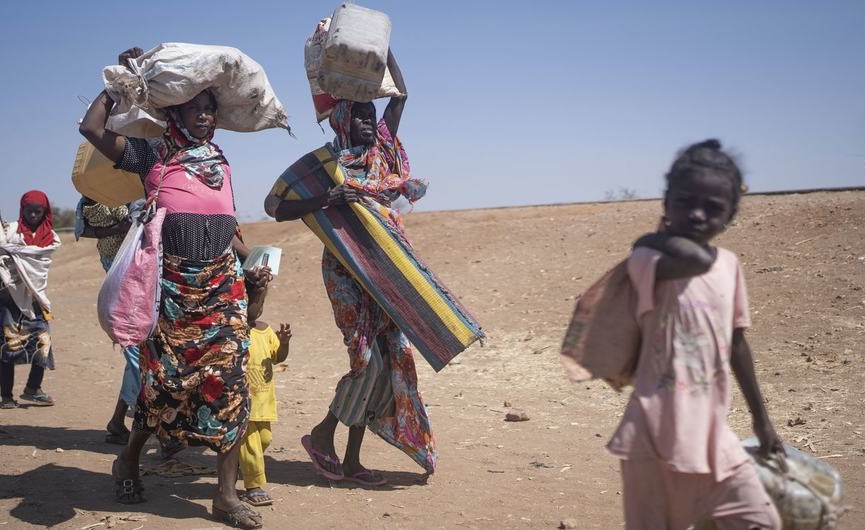Afghanistan
The humanitarian crisis in Afghanistan is deteriorating rapidly.
Since January 2021, more than 550,000 people have been newly internally displaced and 735,000 people have returned to the country from Iran, Pakistan and other countries and are in urgent need of humanitarian aid.
Humanitarian needs are expected to deteriorate further in the second half of the year due to drought. Some 12.2 million people are already acutely food insecure and the majority of those will be further affected by this drought.
Below-average wheat harvest is expected and livestock yield is expected to be weak due to poor pastures and feed availability. Agricultural labour activities are estimated to have reduced by 28 per cent due to the conflict and drought, adding to this vulnerability.
According to modelling, severe acute malnutrition increased by 16 per cent and moderate acute malnutrition increased by 11 per cent, impacting 900,000 and 3.1 million children, respectively.
Prices for food commodities continue to be at elevated levels. Further temporary inflationary effects with conflict-related movement restrictions have affected the prices of staples. Wheat, rice, sugar and cooking oil have increased by more than 50 per cent compared with pre-COVID-19 prices, with monthly increases in 2021 of between 1 and 4 per cent.
The Humanitarian Response Plan is just 37 per cent funded, with more than half the year over.
Funding for emergency shelter and relief items is particularly urgent due to the surge in displacement, but only 4 per cent of the funds required have been received.
Ethiopia
OCHA reports that the situation in Tigray remains unpredictable and volatile, while movement of Tigray Forces in Amhara and Afar continues.
Humanitarian access into the region remains restricted via the only road through Afar region, where there is insecurity, with extended delays for clearances of humanitarian supplies, and intense searches at checkpoints. Only 30 trucks with humanitarian supplies can be scanned each day under the current procedures, but 100 trucks of food, non-food items and fuel are needed per day moving into Tigray.
From 16 July to 15 August, 318 trucks with humanitarian supplies entered Tigray. This is a fraction of the required humanitarian cargo to meet the mounting needs.
Humanitarian operations are also severely affected by lack of stocks, cash, banking services, fuel and telecommunications. Transport of ICT equipment is still prohibited.
Staff rotation is improving, with the UN Humanitarian Air Service passenger flight (Addis Ababa-Mekelle-Addis Ababa) now operating two regular flights per week, as planned.
We, along with our humanitarian partners, continue to stay and deliver to help meet the existing and emerging needs. As of yesterday, there are 457 UN staff (from 10 UN agencies) supporting the humanitarian response in Tigray (90 international staff and 230 national staff in Mekelle and 15 international staff and 122 national staff in Shire).
Similarly, NGO partners continue to maintain presence in Tigray, with 35 NGOs (29 international NGOs and 6 national NGOs) currently responding to needs on the ground.
Food response remains the largest component of the response. Despite the many challenges, between 5 and 11 August, food partners reached more than 1 million people under Round 2 of the Response Plan.
Partners reached about 184,000 people with water and 10,000 children with educational programmes, and donated 10,000 textbooks in support of school reopening efforts.
Twenty-nine mobile health and nutrition teams continue to provide essential health services, reaching more than 50,000 individuals with medical consultations at 72 health facilities and 47 camps for internally displaced people across the region last week.
Additional staff and supplies into Tigray is the urgent requirement, along with restoring electricity and telecoms, and ensuring that cash and fuel are available to support the response.
Distributed by APO Group on behalf of Office for Coordination of Humanitarian Affairs (OCHA).
Source
South Africa Today Africa – Central Africa Central African Republic News










